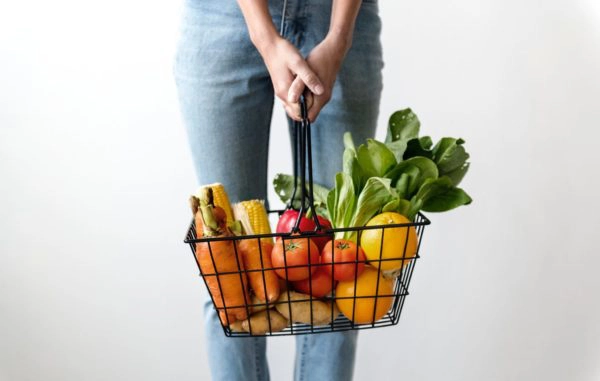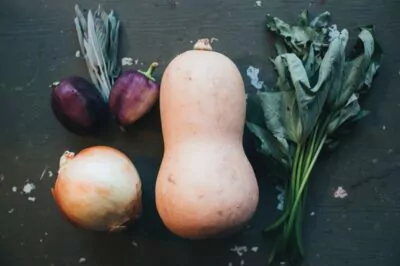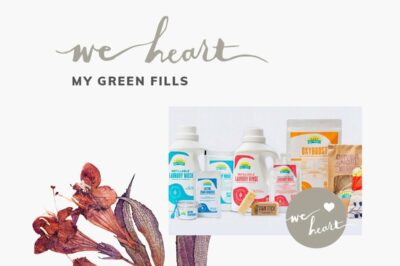Feeling good about your last grocery store trip? You stayed in the natural isles, you made all the organic choices you could, and everything in your shopping cart exudes health with products plastered with images of fresh vegetables, farms, and natural colors.
And yet when it comes down to it, you aren’t feeling the health benefits you thought you would. That often happens with greenwashing products.
What is Greenwashing?
Greenwashing beauty and food products are a form of brainwashing from many brands in the industry, and although we’re living with it every day, the concept is something out of a dystopian future. Companies of all sizes use greenwashing to trick consumers through creative branding into believing they are choosing healthier options.
By using specific phrases like “all-natural” or “sustainably produced,” and visuals associated with health and nature, companies give the impression they are more environmentally friendly and healthier than they truly are.
Does This Scene Sound Familiar?
It can be as simple as designing a bag of potato chips with a farm scene to imply freshness. Or it can be more convoluted.
Frito-Lay chip company tried to play into the health kick of the last decade, but since their product is inherently unhealthy they resorted to greenwashing. If you compare the Natural Lay’s Potato Chips to the Classic Lays Potato Chips, the “natural” product gives the appearance of being healthier.
Don't Let Earthy Packaging Fool You
They opted for earth tones on the environmentally-friendly looking packaging and emphasized “natural” on the label. However, the only difference between the two, besides thickness of the chip, is that the natural chips use a different type of oil and salt. There is no difference between the grams of fat and the number of calories.
Different types of oil and salt were enough for a complete rebranding that lead consumers to believe they were making a healthier choice.
Is This…Allowed?
Unfortunately, yes. The worst part is everything they’re doing is completely legal; it’s up to the consumer to stay informed and do the research when it comes to what they’re buying.

Ways to Identify Greenwashing Products
Nobody wants to have to do homework before going grocery shopping. There’s a limit to how much work we’re willing to put into our health. But we’re here to simplify the process for you and help you understand what to look for when it comes to greenwashing.
1. Bypass The Packaging and Read the Label.
Don’t be fooled by pictures of fruit, farms or any other faux-branding. There are no regulations on the images a company can use on their packaging. Even though you’re buying a bag of fried potatoes, the image on the packaging of fresh vegetables being pulled from the earth by a burly farmer can easily convince consumers they’re making healthy choice.
Beware of Greenwashing Brands
Another deceitful trick of greenwashing is using earth tones to connote an all-natural vibe. Since the new era of consumers has shown a clear interest in health, brands have begun producing packaging with more greens, browns, and blues, and avoiding bright, flashy, and unnatural colors.
Once again, the visual does not necessarily represent the food. The only way to tell if a food is truly healthy (whatever your definition of healthy may be) is to READ THE LABEL.
2. Look for The Seals
Look for proof that your products are healthy. Products that are actually healthier options will flaunt their certifications, so it shouldn’t be hard to find. Some trustworthy seals to look for on your products are….
- U.S. Department of Agriculture (USDA) organic certification: USDA certification is a reliable source due to their regulations and rules that govern how a product is made from growth to manufacturing.
- Green Seal: Green Seal is an eco-friendly non-profit that develops standards for companies to comply with in order to be labeled environmentally friendly.
- Non-GMO Project Verified: The Non-GMO Project is not yet the official certification for identifying non-GMO products, but right now it’s the leading verification. Since genetically modified organisms are a newer concept, there is no official certification yet. The Non-GMO Project is a difficult seal to attain, since it requires absolutely no GMO’s down to the cow, plants, and seeds.
And Be Cautious, As Well…
Be wary of the Tested Green seal. A few years back the U.S. Federal Trade Commision targeted Tested Green when they discovered companies were buying the Tested Green label for $200 to $500.
3. Stop Trusting the Slogans
A company cannot claim to be “all-natural” if it is blatantly adding chemicals to its product, but there are many ways for “all-natural” brands to side-step the loose vernacular. Since the FDA doesn’t regulate the term “all-natural” there are no official rules or regulations around the slogan.
Oftentimes companies will use ingredients with compounds derived from plants mixed with synthesized compounds. The only way to truly know if a product is all-natural is by checking the ingredients and researching anything you’re not familiar with.
4. Know What Being Green Really Means
Labels and certifications can refer to a number of different aspects of a product. There is a wide spectrum of practices that goes into food production. Does “sustainably produced” mean a commitment to minimal packaging, farming practices, or efficient manufacturing?
The Takeaway? Do Your Research
It’s up to us as consumers to do the research and learn the values of the companies we support. Ask questions about the food you consume and don’t be duped by greenwashing.
Do you keep your eye out for greenwashed products? We're opening up the comments for discussion on greenwashing. We’re very proud to be a company that provides truly natural products, feel free to read the labels on our eye care and body care products.
7 Toxic Chemicals Found in “Clean” Laundry








Great article, many shoppers are still not educated enough on this. I am very skeptical about ingredients and question everything in the processed foods I buy for my family, I try not to but they don’t always want a salad lol. A few years back I switched all my skin care, hair care and more products to better brands and then learned more again and am now using even better or best brands. I am currently changing makeup brands. I make sure to take my husband food shopping now and lots of times hope pick up a product and look at the ingredients and say “this looks good” and I will come over and take a look and then point out which ones are the bad ingredients in it and how we don’t want to use that brand. I’ve been trying to educate him more and more so he can make better choices as well. Same thing with my daughter if she comes with me.
I am on constant look out for greenwashing, for both food and all skin/hair products. I view everything with a skeptical eye. Certain things are red flags immediately, such as bright, unnatural colors (usually artificial dyes), and/or amazing, suspicious claims. But some are much more subtle. You do have to be careful. Another thing I’ve found I have to watch out for is products that are otherwise genuinely “healthy” (i.e., nothing known to be harmful in them), but, then they contain one or two ingredients that appear to be potentially harmful, due to perhaps a lack of knowledge on the part of the formulator, who was genuinely trying to make something healthy. In these cases, I have reached out to ask them about it, and usually get a good response — and sometimes it’s due to my lack of understanding/knowledge, or I have gotten misinformation myself! It never hurts to ask. In one case, a “report” that alleged that an ingredient was “bad” was actually flawed and skewed, and came from a competing company with a hidden agenda! You have to be so careful. Constant vigilance! 🙂
What is CCOF? I seen on a skin care product, as “approved by CCOF”. Do you know any of the regulations on products from New Zealand or Australia? If so, what are they? Marshall and TJ Maxx sell a lot of different manufacturers products and this is where I seen these. Thank you
CCOF: California Certified Organic Farmers. You can check out their website to learn more. You can Google NZ and AU food/skin care product regulations, too.
Shaklee! Always organic. Never tested on animals. Constantly tested for contaminates. 100% guarenteed. One of the first biodegradable cleaners ever produced. First climate neutral facilities.
the number of calories and/or fat content are not the problem. it’s the TYPE of fat and calories…if a brand is using unhealful, processed veg fats in their ‘natural’ products, then theyre basically the same harmful junk, and they are duping the public into thinking otherwise. a better idea is to avoid all packaged junk food, and make your own. an occasional indulgence wont kill you, but best to remember that products in the junk food aisle will never be health food!